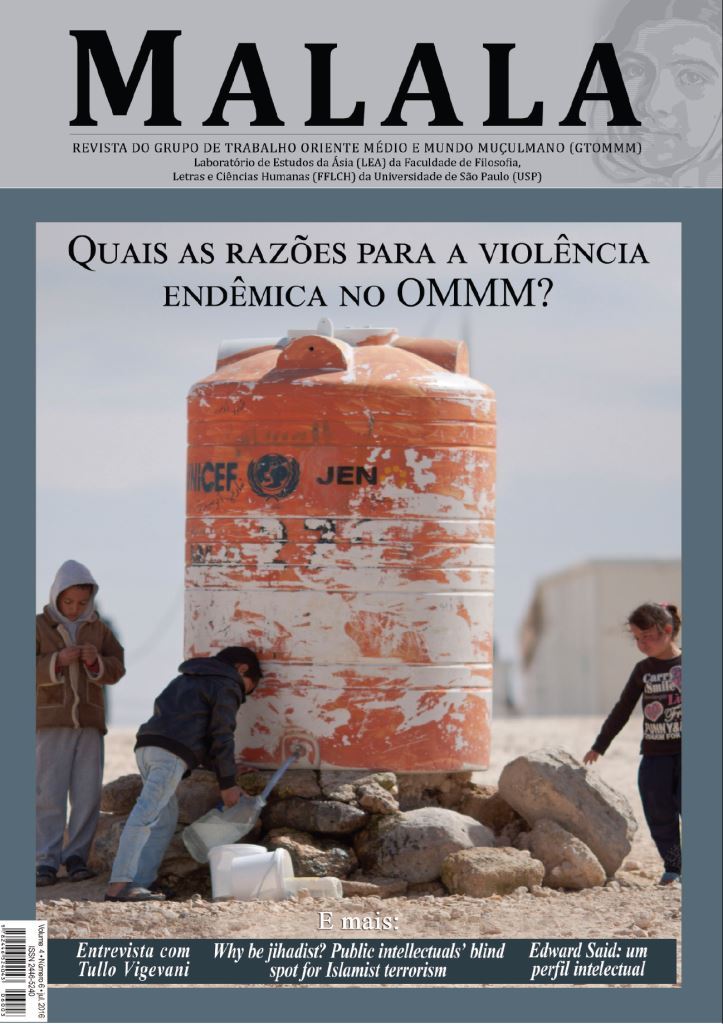Why be jihadist? Public intellectuals’ blind spot for Islamist terrorism
DOI:
https://doi.org/10.11606/issn.2446-5240.malala.2016.122156Resumo
Intelectuais públicos ocidentais, principalmente os de esquerda, muitas vezes relativizaram o terrorismo, inclusive os ataques jihadistas perpetrados por uma pequena minoria de muçulmanos. Este artigo discute as recentes contribuições intelectuais em termos de análise e estratégias para lidar com o terrorismo. Nós classificamos as posições de intelectuais em duas vertentes, uma, correspondente ao espectro clássico Esquerda-Direita e, a outra, indo do universalismo ao relativismo. Esta abordagem cria quatro quadrantes: duas versões universalistas, a esquerdista (marxista-anarquista) e a libera; e duas alas do relativismo, uma pós-moderna-multiculturalista e a outra culturalista conservadora. Cada quadrante tem uma explicação e resposta especifica ao desafio do terrorismo jihadista, porém, enquanto as duas primeiras estão numa posição defensiva, o segundo grupo está crescendo. Tanto marxistas quanto pós-modernistas tendem a acusar o capitalismo. Mas, enquanto a esquerda universalista co-divide com os democratas liberais a busca por uma mudança estrutural universalmente transformadora, os relativistas clamam por mudanças de atitude, com o multiculturalismo da esquerda acusando o ocidente e chamando para uma tolerância ao islã subalterno (inclusive suas ocasionais expressões violentas), enquanto a direita culturalista culpa o islã e clama por um protecionismo cultural (“islamofôbico”). No entanto, até agora não parece ter surgido nenhuma resposta efetiva ao jihadismo, lacuna que pode ser atribuída a um ponto cego comum à maioria das posições intelectuais: a relutância em lidar com as causas que atraem algumas pessoas ao terrorismo. Este artigo compara algumas tentativas recentes de entender estas causas e conclui que seu denominador comum é uma crise de pertencimento e transcendência do próprio ocidente; lidar e responder a esta crise social e ideológica é tarefa dos intelectuais ocidentais públicos e precondição para efetivamente atacar o problema do terrorismo.
Downloads
Downloads
Publicado
Edição
Seção
Licença
Esta revista oferece acesso livre ao seu conteúdo, seguindo o princípio de que disponibilizar gratuitamente o conhecimento científico ao público proporciona maior democratização mundial do conhecimento. Não será cobrado nenhum tipo de taxa ao longo do processo de submissão de trabalhos e publicação da revista, bem como para leitura, download, cópia, distribuição, impressão, pesquisa ou referência após sua publicação. Leitores e partes interessadas são livres para compartilhar (copiar ou distribuir o material em qualquer mídia e formato) e para transformar ou adaptar partes do material desde que para uso não comercial e desde que o crédito apropriado seja dado ao autor e à Revista, indicando de que forma os dados foram utilizados e/ou manipulados.





